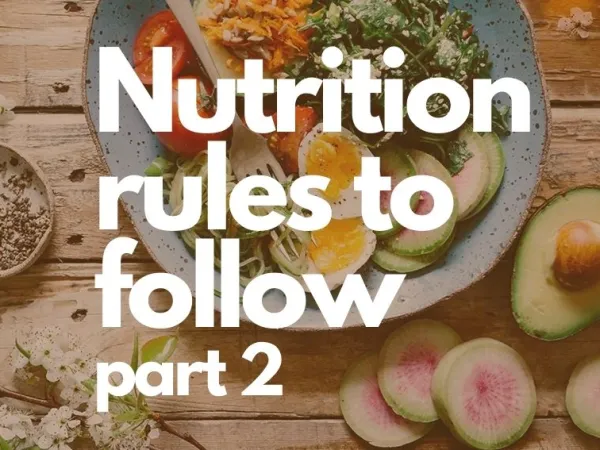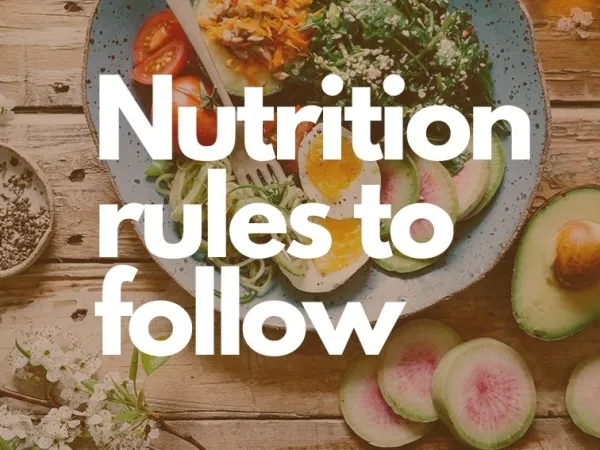After reading part 1&2 of this series you’re probably wondering what the solution is to the worldwide problem that is obesity and weight gain. If you have read some of my other blogs on fats and carbohydrates you might have picked up on the answer already, but I am going to dive a little bit deeper into it for this one.
*You can find the links to the those blogs here and here.
Back in the day
As we have talked about and established in the past 2 blogs, the ”old school” way of thinking when it comes to nutrition doesn’t work. The ”low fat – high carb” approach doesn’t help change things, it makes things worse. As we established before, this way of thinking got super popular around the 1970’s but before that time that wasn’t the case. If we could travel through time to when your grandpartents were still young (before 1970), you would be able to find a lot more people telling us to stay away from high carb/sugar foods. If we could travel further down our timeline, back to the cavemen days, you wouldn’t even be able to find the carb/sugar sources that are so popular today. Luckily for people back in the day fats were the nutrient source that was available to them. Fats satisfy us for longer because they’re calorie dense, we’re able to survive of them for a long time. Carbohydrates would have translated into lot of the hunters an gatherers dieng because they would have run out of energy while hunting and gathering food. The animals, nuts and seeds they were able to hunt and gather did not only provide them with a good amount of protein but more importantly a high dose of fats. As we know protein is the building block but fats actually give us energy to do things. Carbohydrates are stored as glycogen only for so long, fats however will always be stored as fat and ready to use as energy. (*glycogen is another word for carbohydrates stored by the body, ready to be used as energy)


Carbohydrates are not necessary for survival, fats are.
To prove this to you, let’s take a look at the longest fasting period known to man (* fasting = the time where you go without eating).
The longest known fast was in 1971, when a 27-year-old man survived on water and supplements for 382 days and shrank from 456 to 180 pounds. The reason why this person was able to survive without consuming any food is because of the huge amount of fat that was stored away in his body and ready to be used as energy for the entire 382 days. Would he not have had that amount of fat stored within his body he would not have been to make it even remotely close to that time, worst case scenario he would have died.
The ”Chain reaction”, A summary
Sugar/simple carbs –> big blood sugar spikes –> insulin produced by the body –> body is asking for more sugar –> more insulin –> weight gain/obesity/insulin resistance –> diabetes.
This is the chain reaction of insulin that gets thousands and thousands of people on an annual basis.
A solution, Stay away from sugar, consume more fat, keep up the protein.
I really hope that you’re well on your way by staying away from sugars because I am probably not the first person to tell you that. If you have read the past 2 blogs you know how true and important this statement is. Sugars have a direct impact on your blood sugar level and that translates into more insulin production, as you can read in the summary above, insulin is directly responsible for weight gain and obesity. More insulin = more weight gain.


So what can we do to turn things around and actually start losing weight or at least stop gaining it?
Eating more is not the cause of weight gain, it’s the result of weight gain. As shown in the part 2 of this blog, creating a caloric deficit is not responsible for sustainable weight loss, which means that eating too many calories isn’t the main cause of weight gain. It’s all about where the calories come from. When we gain weight because of insulin production our body raises our set body weight, which translates over to a higher metabolic rate and that means more calories needed throughout the day (result, not the cause).
I have been talking and writing about the benefits of a high fat & protein based nutrition for a while now and this blog shows you exactly why. I am not going to lie, protein has shown to influence our blood sugar levels but not nearly as much as sugars do. Protein is much more valuable and needed than carbohydrates are. We use protein to help build/maintain muscle mass and strength, it keeps you satisfied longer because of the less dramatic impact it has on your blood sugars levels, just to name a few reasons.
The big aspect of our nutrition we want to put more focus on however is fats. Fats are shown to have a very minimal impact on our blood sugar levels, which means less insulin, which means no weight gain (as I have shown before). All we have to do here is let go of the old information which tells us that ” fat makes you fat”. To contrary belief, fats actually support sustainable weight loss, maintain a steady weight and increase fat loss. I hope this blog and the ones I have published before helped you see that.

6 nutrition rules to follow, part 2
Welcome back to part 2 of this series, nutrition rules to follow. Really what this blog should be called is nutrition rules that you COULD follow. There’s already enough people out there that will tell you exactly what you should be doing and how to do it. Instead, I just want to give you the…
6 Nutrition rules to follow, part 1
Welcome back to another blog where we cover the wide topic of nutrition. The reason why I keep coming back to different topics related to nutrition is because the nutrition space is filled with false and misleading information. My goal is to simplify the message and give you honest information. I never want to tell…
5 Steps to getting stronger
Welcome back to this week’s blog where we cover a topic that I am super passionate about and that is getting stronger. Why am I so passionate about it? Because it has never come easy to me. Even since the start of my fitness journey I have always looked at other people in the gym…






Leave a comment